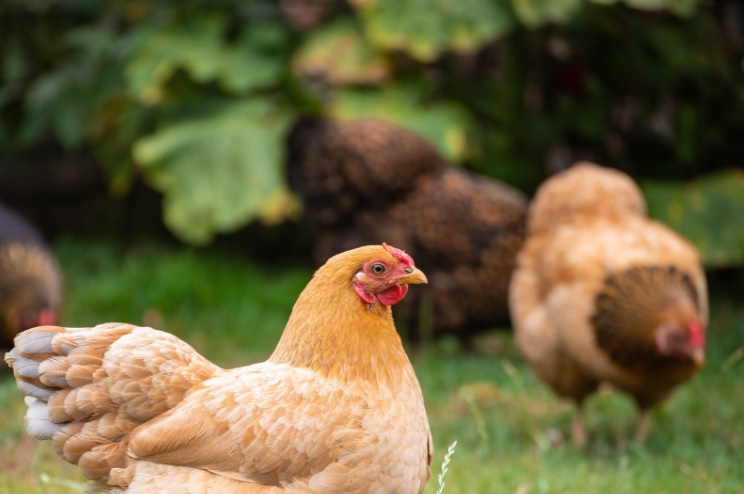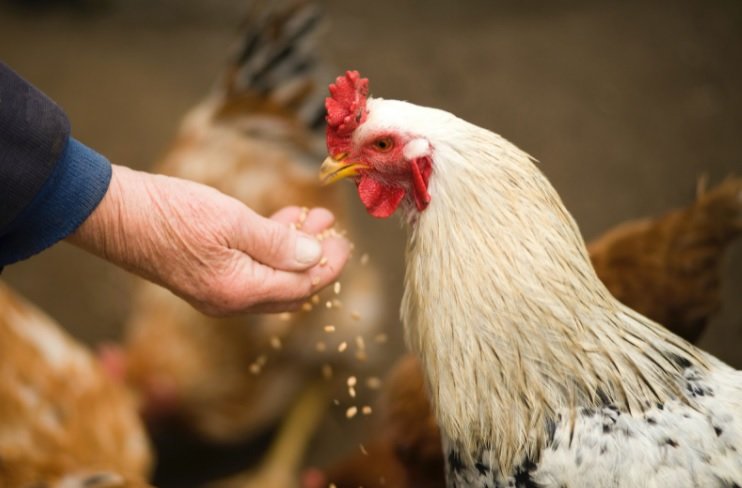Raising chickens sounds like a really big challenge for those who have never done it before. While it’s understandable that you may feel this way, I can confirm that it is considerably easier than you might think, especially when you have a friend on hand to answer any of the questions you may have.
Not everyone has a friend with experience in raising chickens, you say? Well, luckily for you, I’ve played the part to my friends quite a few times and have grown familiar with the kinds of questions you may have when you start out raising chickens.
Here are the most common questions I get asked by friends and readers getting into chicken keeping.
What size should my garden be?

Providing too little room for your flock invites several issues into your garden. For one, pecking and, in severe cases, cannibalism can occur. Disease is another component to worry about.
“But Jess, you said raising chickens isn’t complicated”.
It isn’t and this shouldn’t dissuade you from raising chickens, but you should be aware that the logistics behind chicken keeping will have unfavorable consequences if proper time and effort isn’t put in.
Budgeting
That said, you can safely budget for a minimum of 3 square feet per chicken in your coop and 10 square feet per chicken in your run. Keep in mind that this is all minimum space – the more space you offer your chickens, the better for their health and quality of life!
If your yard is on the smaller side, you can use a chicken harness to take your chicken for additional exercise in larger grassy areas.
While your garden space may be ample, be aware that a larger flock produces an equally large volume of eggs – keep that in mind when planning space per bird.
Which breed is best suited to backyard chicken keeping?
This is one of those, “how long is a piece of string” kinds of questions. The breed (or breeds) you choose to keep will depend on a variety of factors, such as space, flock size, climate, or the number of eggs you want to harvest.
It’s best to identify these variables before you decide on the breed to want to opt for, then, when you’re ready, I recommend checking out sources like this, so that you choose the best breed for your needs.
What do I feed them?

Chickens aren’t particularly fussy eaters; at least not in comparison to other livestock, such as goats. That doesn’t mean they can eat anything you put in their feeding pan, so before we jump into what you can feed your chickens, let’s chat about what you shouldn’t feed your chickens.
Foods To Avoid
Items with toxins harmful to poultry should be avoided at all costs.
Items in this category include dry beans (hemagglutinin), chocolate (theobromine), green/ overripe potatoes (solanine), and avocados (persin).
Rotten food items should also stay off the menu – you might think this is an obvious one, but remember that your chickens will eat a lot of the scraps you produce when cooking. Make sure that any scraps you feed them are not severely discolored, foul-smelling, or moldy.
What you should feed your chickens
This leads me to my next point – what you should be feeding your chickens!
Chickens thrive on fruit and veg, so saving scraps (as I mentioned above) is an affordable way to keep your chickens happy and well-fed. I keep a bucket in my kitchen for the peels, tops, and leftovers of food items like carrots, bananas, and rice.
If you have your own veggie garden, your chickens will benefit from your efforts just as much as you do. Of course, standard feed is also a viable option and one that your chickens will love!
Do the elements come into play?

Chickens aren’t exactly fragile fowls. They are naturally equipped to handle most environments, though one breed may fare better in a colder climate than another with a particular fondness of the heat. If you live in an area where climates become extreme (on either end of the thermometer) your first means of protecting your chickens from the elements is identifying breeds suited to your climate.
Cold Climate
If you reside somewhere colder, repair any holes that could act as inlets for drafts and rain. Also, provide your birds an area to roost that is a few feet off the ground so that they can stay warm as a group. Chickens roost collectively and will help each other stay cozy.
Warm Climate
If you stay somewhere warmer (generally 32 degrees Celsius/ 90 degrees Fahrenheit or more) you should ensure that your coop is well shaded and ventilated. Providing extra shade in your run can save you girls from overheating.
Ensure that they have ample water sources. A well-placed splash pool can go a long way too, giving your chickens a chance to escape the midday heat by dipping their toes.
How do I protect them from predators (and which predators should I keep in mind)?

When it comes to the animals you’ll want to keep away from your chickens, the list is long!
From predatory birds to other pets, here are just a few of the animals you should account for when securing your chickens:
- Dogs and cats,
- Hawks, falcons, and owls,
- Snakes,
- Rodents,
- Coyotes, weasels, and foxes, &
- Raccoons and opossums.
With such a big number of predators, it may seem challenging to keep your chickens safe. Not true! Here are a few tips that will keep your chickens out of the jaws of would-be attackers:
- Keep the coop closed up, from bottom to top. A simple mesh covering over the top of your run will keep even the scariest of birds out.
- Bury mesh at least four feet deep. Many of the predators I mentioned are avid diggers – burying your mesh deep will aid in keeping them out!
- Check for kinks in the armor. Regularly inspect your coop to ensure that there are no exposed points of entry.
- Keep the coop clean and the nests empty. Ensure that there is no temptation for pests drawn by excess scraps or eggs by regularly cleaning out the coop and collecting eggs daily.
That’s about it from me for this one. If you have any tips for new backyard chicken keepers, let me know! I would love to get a discussion going and learn some new tricks from you. If you have any questions that I haven’t answered here, let’s meet up in the comments and get you on track to raising healthy, happy chickens!



